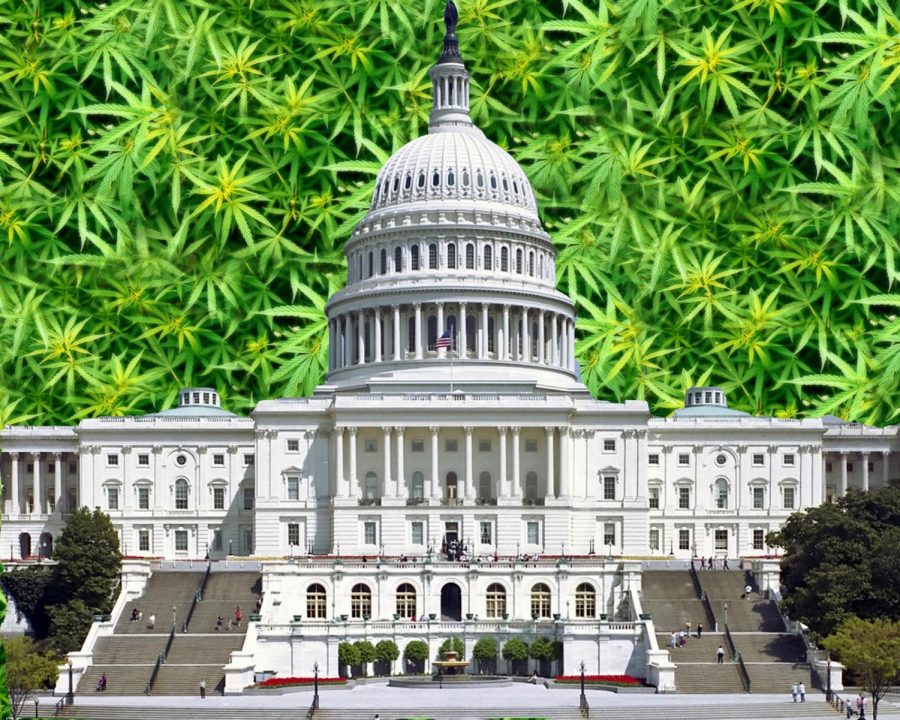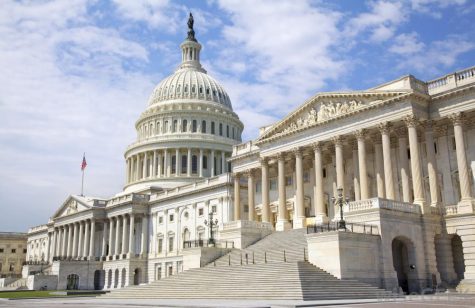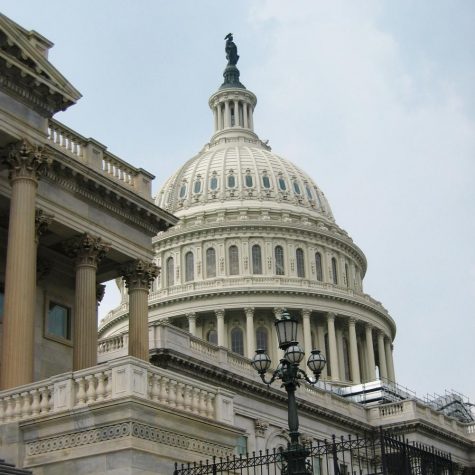Congress reintroduces federal cannabis legalization bill, Senate focuses on different measure
On Friday, May 7, a bill to federally legalize cannabis and raise awareness for industry-focused social equity was formally presented in the House.
The proposed piece of legislation is titled the “Marijuana Opportunity Reinvestment and Expungement Act,” better known as the MORE Act.
Sponsored by Judiciary Committee Chairman Jerrold Nadler (D-NY), the federal cannabis legalization bill was a slightly amended version of a chamber-approved measure from last year.
Aimed at eliminating cannabis from the Controlled Substances Act (CSA), the federal cannabis legalization bill would allow people to have their cannabis convictions expunged, as well as help develop a federal tax on cannabis.
Tax revenue earned through federal cannabis legalization would be used to support community reinvestment and various other programs. The bill has surfaced amid the preparation of a separate reform proposal by the Democratic-led Congress.
Advocates are optimistic that the MORE Act will be enacted
Previously, under GOP control, the Marijuana Opportunity, Reinvestment and Expungement (MORE) Act gained House approval. However, it struggled to move forward in the Senate.
Fortunately, with Democrats now taking control over both chambers and the White House, combined with the fact that a growing number of states are legalizing cannabis, advocates are feeling more hopeful about the prospect of federal restrictions being lifted.
“Since I introduced the MORE Act last Congress, numerous states across the nation, including my home state of New York, have moved to legalize cannabis. Our federal laws must keep up with this pace,” Nadler is quoted as saying to reporters.
“I’m proud to reintroduce the MORE Act to decriminalize cannabis at the federal level, remove the needless burden of cannabis convictions on so many Americans, and invest in communities that have been disproportionately harmed by the War on Drugs.”
New version of the MORE Act is different to previous version
Unlike last year’s edition of the MORE Act , which would have prohibited individuals with past cannabis convictions from receiving federal cannabis business permits, the most up-to-date version of the MORE Act features different legal language.
The unsuccessful provision that was put forward in 2020 was strongly opposed by cannabis lobbyists, many of whom rejoiced at its demise.
Whereas an earlier version of the MORE Act pushed to assist economically disadvantaged people in entering the legal cannabis market, the bill’s authors have since amended its language to include Small Business Administration (SBA) aid; inclusive of job training, loans and financial literacy programs.
SBA aid of this kind would prove beneficial for people who’ve been negatively impacted by the failed war on drugs by helping them to access business opportunities in all industries, including the cannabis market.
Numerous key provisions of the bill that bagged House approval last year have not been revised, such as language that would offer incarcerated individuals resentencing opportunities.
Additionally, legal framework that would safeguard immigrants from being rejected citizenship over cannabis, as well as a rule stipulating that federal agencies should not be allowed to deny security clearance or public benefits due to cannabis consumption, remains in the latest version of the MORE Act.
“With the majority of Americans in favor of cannabis legalization for adult use, and the way in which communities of color have been devastated by prohibition finally being widely acknowledged, prioritizing cannabis reform that begins to undo this harm and give back to those communities should be a no-brainer,” said the policy manager for the Drug Policy Alliance’s (DPA) Office of National Affairs, Queen Adesuyi.
“We are grateful that not only was this bill reintroduced so early in the session, but that the exclusionary language that ended up getting added in through the political process last year was removed,” she continued. “This bill is meant to comprehensively address the widespread harms of prohibition, and it is impossible to do that if we are still leaving those that have already paid the steepest price out. We urge House Leadership to bring this bill to the floor without delay.”
Senate leadership on-track to file legalization legislation
As cannabis advocates wait anxiously to hear the verdict from House leaders regarding the MORE Act, Senate leaders are also taking strides towards legalization legislation.
Although the specifics have not yet been confirmed, industry insiders believe that the Senate Leadership’s legalization legislation will feature social equity components much like those contained in the MORE Act.
The bill has been rigorously hashed out over the last few months by Senate Majority Leader Chuck Schumer (D-NY), Senate Finance Committee Chairman Ron Wyden (D-OR) and Sen. Cory Booker (D-NJ). According to Wyden, the legalization measure will be introduced “very soon.”
“When the MORE Act was approved by the House of Representatives in the previous session, Congress demonstrated in no uncertain terms that the days of federal cannabis prohibition are numbered,” said Justin Strekal, who serves as the Political Director of NORML.
“While Senate Majority Leader Schumer and Senators Booker and Wyden continue to solicit feedback for their forthcoming legislation in the upper chamber, the House is preparing to once again advance criminal justice-focused legislation that will bring our failed prohibitionist policies to an end while also ensuring that those Americans who are saddled with the consequences of a cannabis conviction can have their records cleared,” Strekal continued.
Schumer affirms that the bill will “ensure restorative justice, public health and implement responsible taxes and regulations.”
Moreover, back in March, Schumer noted that the legalization legislation will prevent major alcohol and tobacco companies from overshadowing the legal cannabis industry. Rather, the bill will put small business owners first in-line to benefit from legalization, which Schumer vows will include “justice, justice, justice, as well as freedom.”
“Last year, we saw more progress toward cannabis legalization than ever before. This has been driven by unprecedented reforms at the state level. Now, Congress must deal with the problems created by the failed federal policy of prohibition,” said Rep. Earl Blumenauer (D-OR).
“With a strong base of support in the House and in the Senate, the table is set. It’s past time that we stop federal interference with cannabis banking and research, as well as the terrible pattern of selective enforcement that has devastated communities of color. The MORE Act will help address all of these problems and more.”












